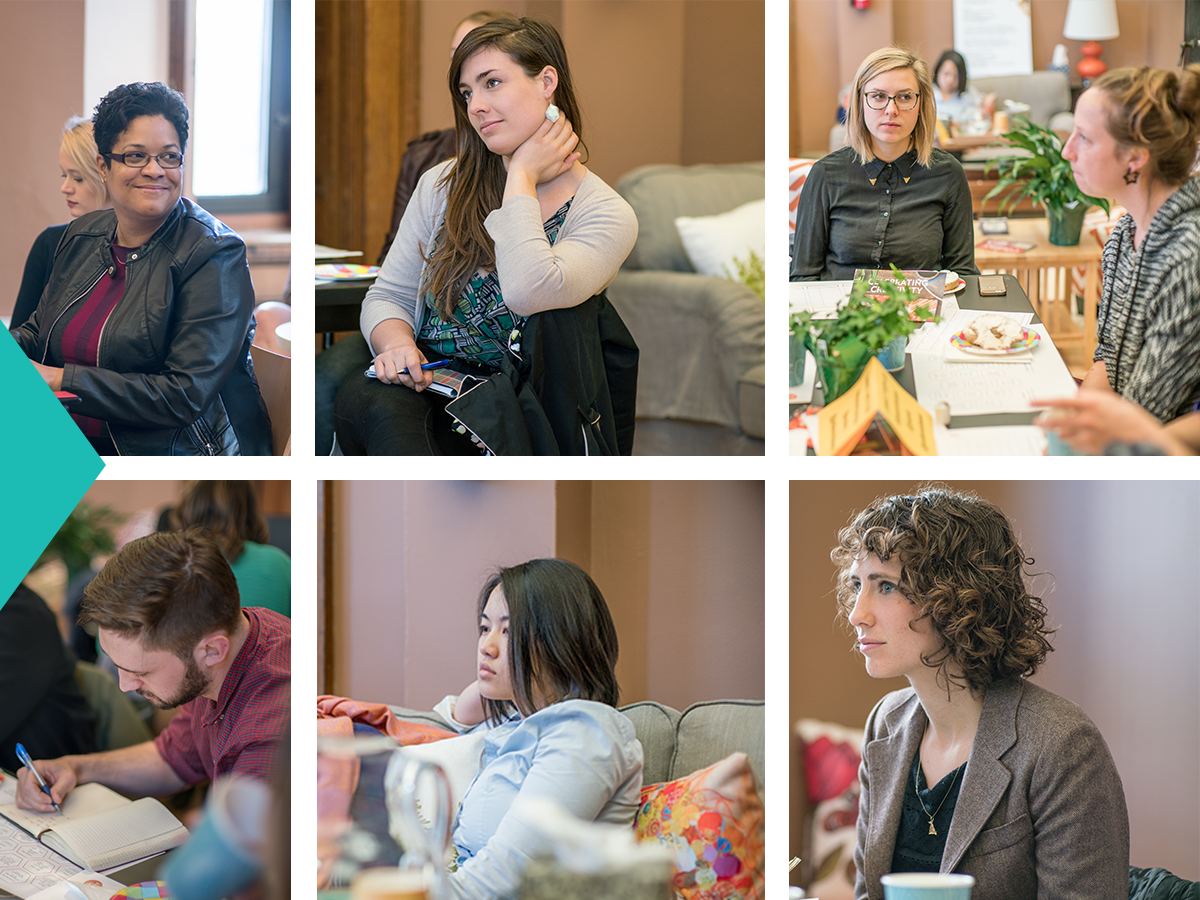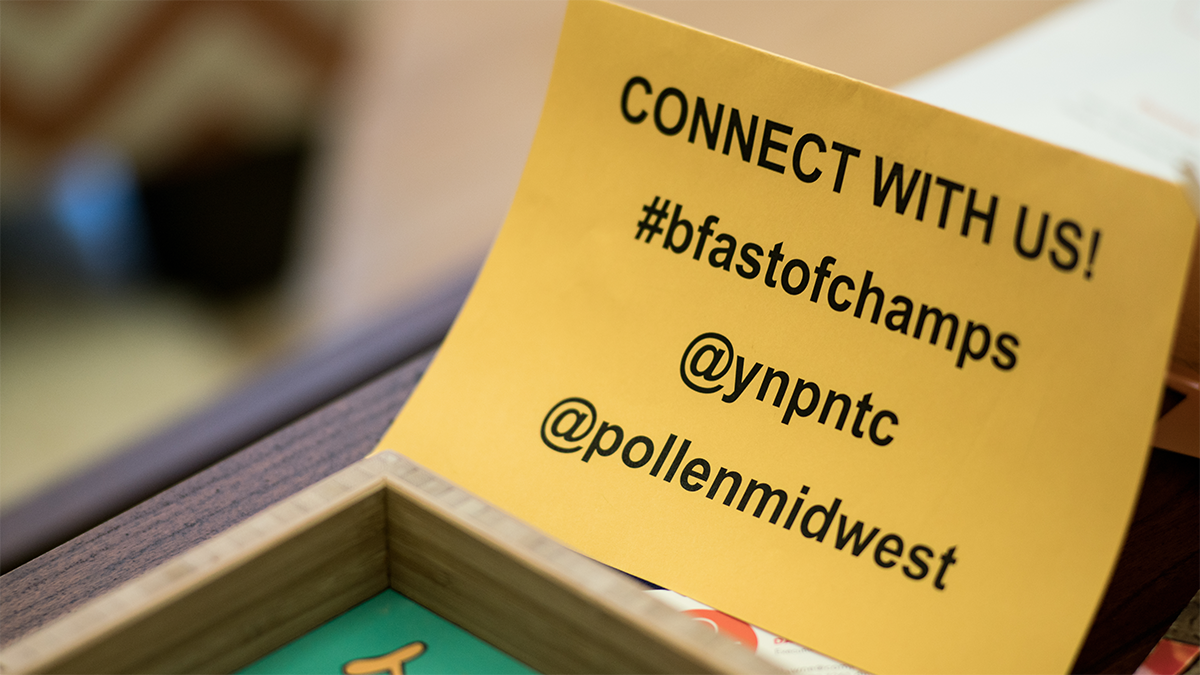
Photos by Marie Ketring + Words by Meher Khan
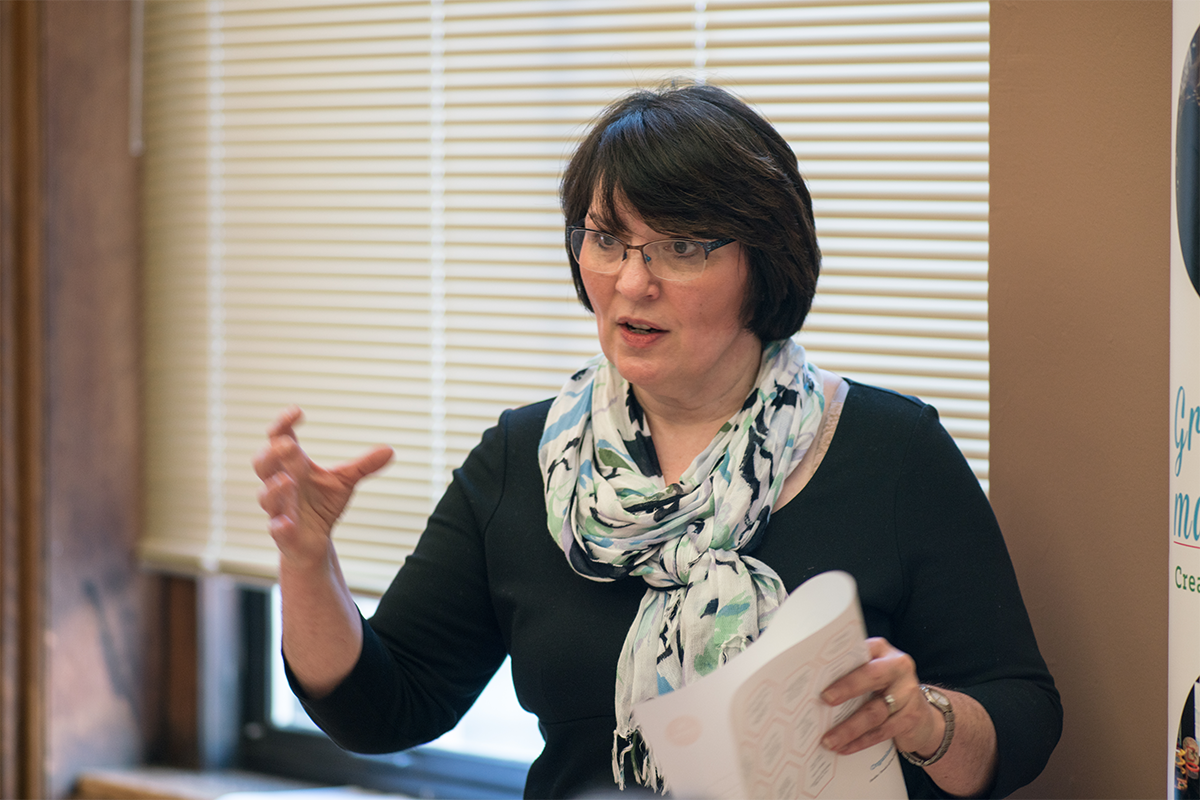
Dawne Brown White has been the executive director of COMPAS, an arts administration nonprofit, since June of 2013. With a background in sales and marketing in both private and nonprofit sectors, and director-level expertise with some of Minnesota’s largest nonprofit organizations—Girl Scouts of Minnesota – Wisconsin River Valleys, Hands On Twin Cities, and the University of Minnesota, to name a few—Dawne is highly qualified to be at the helm of COMPAS. But as she began her YNPN Twin Cities Leadership Breakfast discussion at COMPAS headquarters, she confessed she wasn’t used to talking about herself, and was a little uncomfortable.
As we collectively redefine leadership—away from the assumption that only the charismatic and extroverted are innately qualified for it—Dawne’s disarming revelation commanded its own respect, in a way an introvert like myself could identify with. If someone as qualified as Dawne had insecurities similar to my own, I could genuinely aspire to her experience.
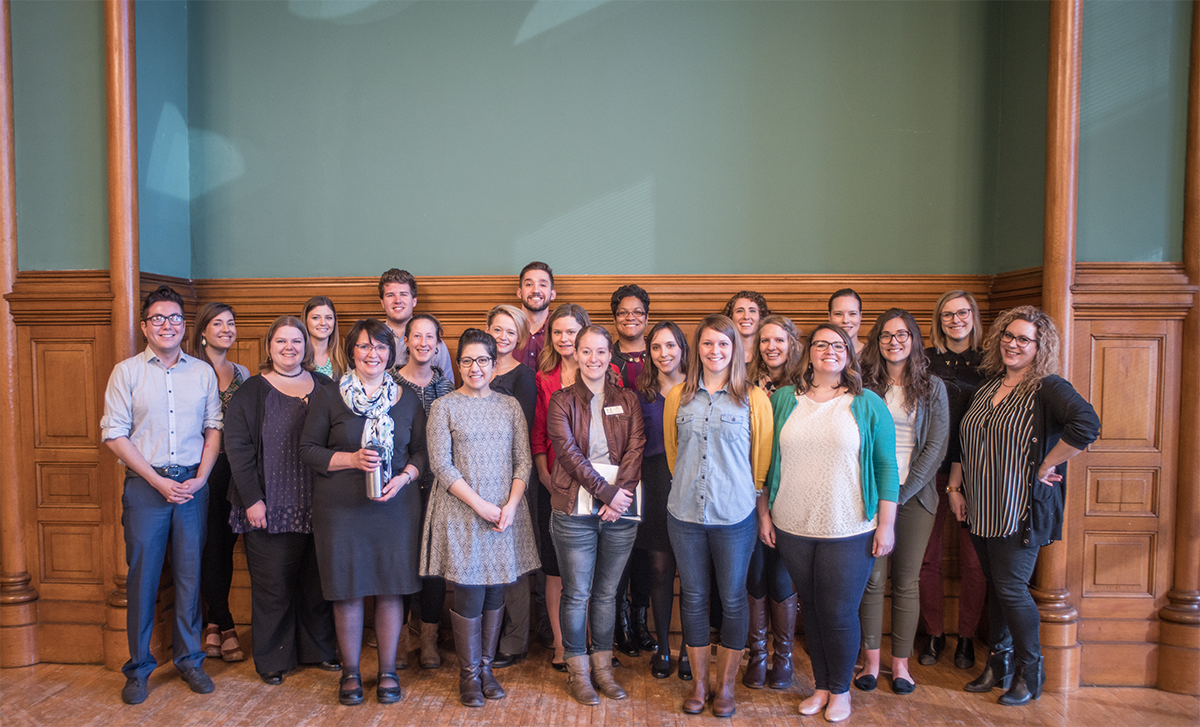
Here, in handy list form, are more of the practical tips we learned from Dawne.
Develop business skills, because a nonprofit is still a business.
Dawne credits her first job as a travel agent as one of her most important experiences, because it gave her firsthand experience with payroll, accounting, and other business-related tasks that she still uses to this day as an executive director. If your long-term goals include directorship or executive-level positions with nonprofits, she recommends building up and maintaining your business skills.
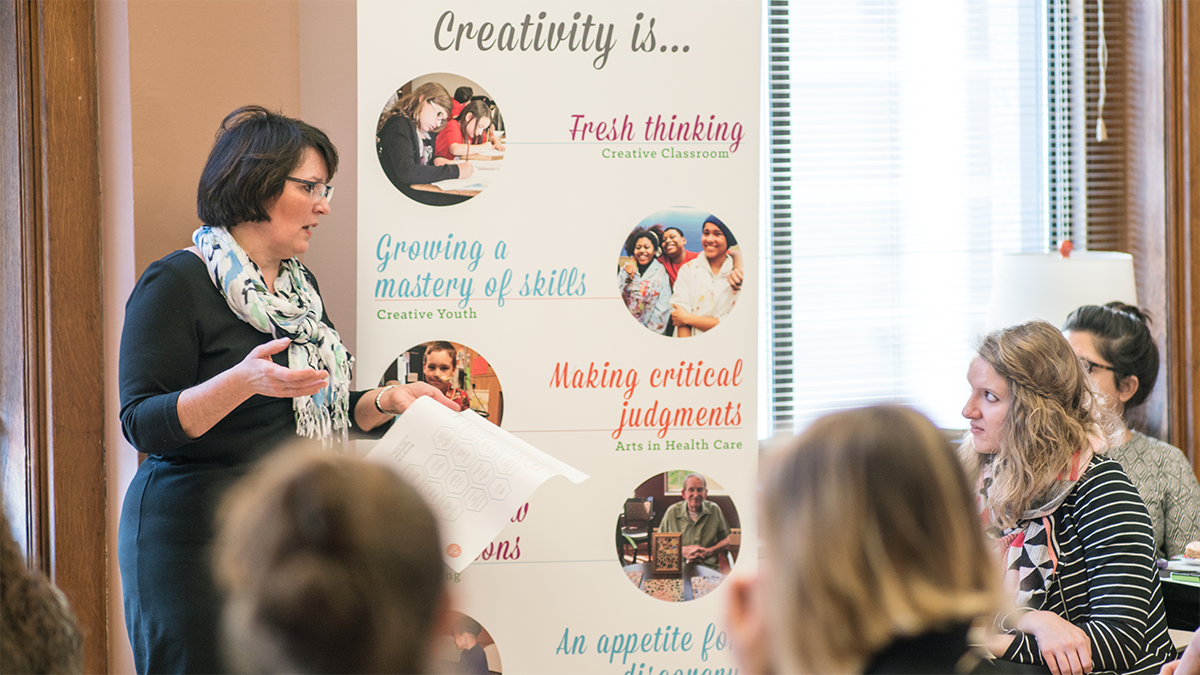
Develop human resources skills too.
We heard about candidates who took key responsibilities of the job they were applying for, created a table with those responsibilities and their qualifications, and put it right in their resume or cover letter. Making it easy for the HR department and your interviewer to see what you can offer is a great way to get you into the hiring process, and having insider knowledge of HR will help you figure out what gets you in the door.
Networking is important. Do it strategically.
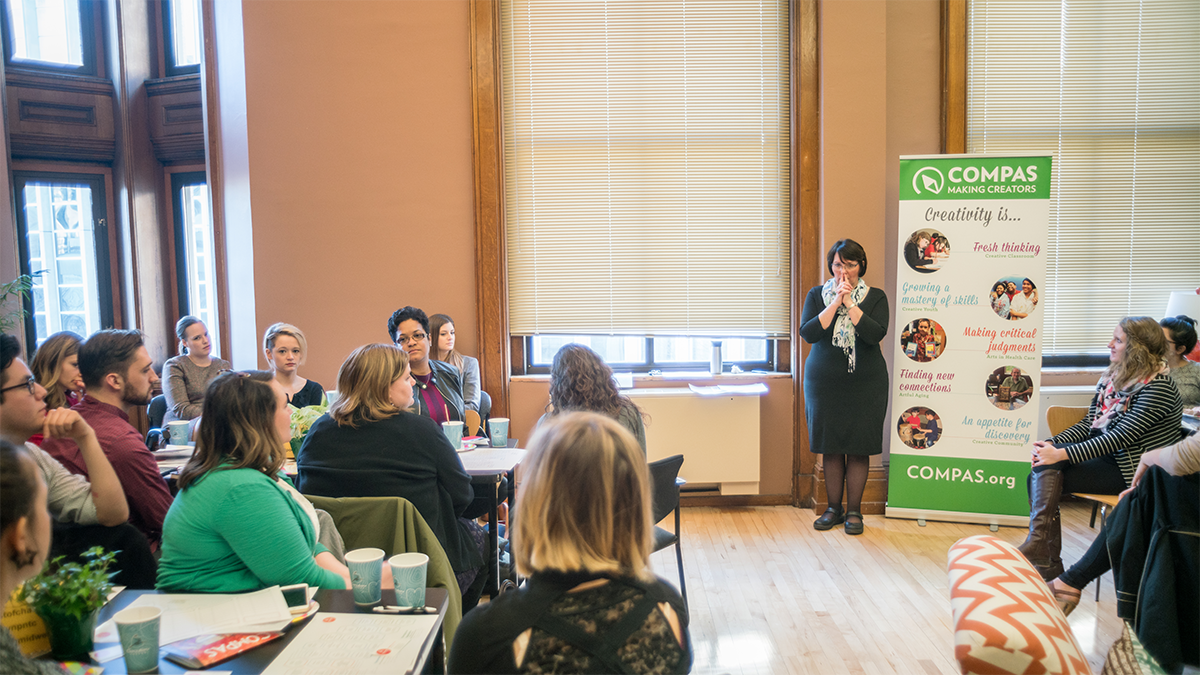
Dawne gave us several examples of networking that she partakes in regularly, including a CEO group that meets to discuss best practices in developing employees and imbuing organizations with skills they need like managing up (plus a healthy dose of commiseration). She also has her own Lean In Circle in St. Paul, one of twelve in the city, and she credits it with giving her the motivation to participate in YNPN’s Leadership Breakfast. “That’s what Lean In does—helping people succeed and putting yourself out there.
Become acquainted with yourself and your working style.
This will help you identify many work habits, like when your best time of day is to get productive work done, and planning your schedule and tasks around it. You can also learn your strengths and areas for improvement, what your ideal job environment is, or where there are experience gaps in your resume. (Dawne recommends Strengths Finder.) From there, you can address those gaps and weaknesses to turn them into strengths.
Volunteering is an excellent way to do just that.
For example, if you want to be a project manager, but don’t have any project managing experience, volunteering for something you are interested in will give you that opportunity. When it comes time to interview or apply for that project manager job, you can point to that skill and experience.
Skills trump passion.
This might have been my favorite part of Dawne’s talk.
“Everyone talks about finding your passion. Forget that. In my view, concentrate on your skills, really build them, get better at what you’re doing, and that’s how you become marketable. Passion is great, but that isn’t gonna be what gets you your next job.”
No nonsense, straight to the point. Isn’t it great? Although passion certainly has its place in our work, Dawne’s perspective reminds us that you can’t survive on passion alone.
All of us are in leadership roles right now!
Dawne recommended a couple of books to us: James Collins’s Good to Great, and First, Break All The Rules by Marcus Buckingham and Curt Coffman. Good to Great deals with levels of leadership, and the first foundational level begins with being a capable individual. In this way, all of us are leaders with the potential to grow, no matter where we are in our career paths or where we’re headed. On that note…
Managing up is a necessary skill.

Even when you’re in charge, someone is telling you what to do. To make this process easier and more communicative, it benefits everyone when every employee is capable of managing up. In a nutshell, that means sharing info and providing value to your manager and shaping their knowledge and skills so they can take that to their manager and your whole department thrives. Dawne strongly recommended everyone explore managing up and said, “It can change nonprofits and make it a better place to work and live for you. And teach your volunteers to manage up so that you have the info you need, so you can put that into your staff and inform your supervisor.”
Be aware of three things: your reputation, your credit, and your health.
This tip is for our future selves, when we’re looking back and wishing we had paid more attention to these things, because they stick with you for a long time.

Workflow things that are helpful:
- Let people know when you’ve completed tasks. It gives them confidence in your leadership and management skills.
- Use tools and apps to track your goals, to-do lists, productivity, and anything else that helps you stay organized and accountable, not to mention reliable.
- “That’s good feedback” is a helpful phrase to know. It gives you a few seconds to think over what someone has just said to you and decide how you want to proceed.
And finally…
Dawne encouraged us to take her advice with a grain of salt. She’s aware that her experience is her own, and what works for her might not work for everyone. Plus, as she added, “If you had caught me two years ago, maybe I’d be saying something different.”
As she thanked us for being there, she told us that this experience had really helped her think through some of her own ideas and processes. And for someone who said she hates process, it was truly insightful to learn from Dawne’s. She made herself incredibly available to talk with any of us, whether in follow-up conversations about what we discussed or for one-on-one conversations, or even resume help. I highly recommend you take her up on it.
